
Privacy Tech Worker Explains How Ads Know Things They Seemingly Shouldn’t
Thousands of people around the world have noticed one odd phenomenon—online ads popping up about the things you talked about with friends, family, or co-workers but haven’t searched up. These micro targeted advertisements can include your mom’s favorite brand of coffee beans, a travel destination your colleague just got back from, or food for cats since your friend told you over the phone they’re getting one from the shelter next week.
So how on earth does this happen? Well, privacy tech advocate Robert G. Reeve may have an answer. He recently penned an illuminating thread to strip the mystery behind such ads, claiming that “Tons of people report on this. It’s just, nobody cares.”
“We’ve already given away too much of ourselves,” he said on how data aggregators pull up all sorts of information about us from everywhere. So let’s read the full investigation right below.
This privacy tech advocate has explained why people keep getting ads for things they talked about but never searched up in this viral thread
Image credits: RobertGReeve
Image credits: RobertGReeve
Image credits: RobertGReeve
Advertising online is not a new thing, but lately many targeted ads have become more personal, intrusive, and often, plain annoying. Sometimes all it takes is one browse of a wristwatch you’ve been thinking of lately, and the damned thing will be following you everywhere: popping up on your computer, Facebook feed, and phone. These stalker ads are no fun in the first place, but micro-targeted ads about things you mention in conversation are the worst.
Image credits: RobertGReeve
Image credits: RobertGReeve
Image credits: RobertGReeve
Image credits: RobertGReeve
Image credits: RobertGReeve
Image credits: RobertGReeve
Image credits: RobertGReeve
Image credits: RobertGReeve
Image credits: RobertGReeve
To find out more about how these ads work, Bored Panda reached out to Daniel Markuson, a digital privacy expert at NordVPN, a leading virtual private network service provider. First of, Daniel said that we keep getting ads for things that we never searched for because some of our devices listen to us quite often.
“Research conducted in the US by Consumer Reports showed that nearly 43% of Americans believe their phone records conversations without their permission,” he said and added: “This belief is connected to voice assistants that most smartphones and IoT devices have installed. And these programs (Google Assistant, Siri, Alexa, and others) are designed to listen to us at all times so that they can hear a voice command and assist.”
“The system works the same way as search engines like Google work. If you are looking for some products online, inevitably, corresponding ads will start chasing you across the internet.”
Big companies like Facebook collect personal data in many ways and voice assistants are one of them, says digital privacy expert
When asked about the conspiracy that suggests big businesses like Facebook are listening and stalking their users, Daniel said “it’s not entirely untrue.” “We are surrounded by devices with microphones and the default settings usually let them record and store the recordings of the commands we make to our virtual assistants. Also, the passive listening on those devices results in accidental recordings, when words are misheard as activation phrases (like using ‘OK good’ instead of ‘OK google’). Some of those recordings are then heard by real humans to develop AI technologies.”
“Most of the smart devices are, in fact, manufactured by big tech companies, like Amazon, Google, or Apple. Those companies have admitted several times that they collect some data from their voice assistants for improving the service quality.” It turns out, we can not really be sure what happens with the information we give to these big companies “so the data can be used for targeting us, as users, as well,” he suggested.
Online ads are not only getting more annoying, they’re becoming much more personal too
When asked why online ads have been getting more intrusive, personal, and annoying lately, Daniel believes it has to do with our decreased attention span and marketers coming up with smart ways to catch our attention. “Our latest NordVPN research shows that the more effective those ads are supposed to be, the more annoyed users feel, with overlay (69%) and flashing banners (54%) being the most annoying for users.”
Moreover, “the pandemic made online advertising very important for marketers as they have much fewer opportunities to sell their products offline,” he added. As a result, “there has been an emergence of more online business, which led to more online ads and more intrusive ways to reach buyers.”
Not only are ads getting more annoying, they’re also getting more personal. “Have you ever asked yourself how much information your phone knows about you? Your searching history, your holiday destination, people you talk the most with, etc.,” Daniel said. “All this information then helps to create advertising profiles, which represent targeting audiences quite accurately,” he explained.
Algorithms are so smart these days, they may end up knowing more about our personal lives than people who are closest to us
Bored Panda also spoke to Lina Survila, PR manager at CyberNews.com, who said that targeted ads by social networks have become an urban myth at this point. “We do get surprised when we get ads about stuff we only think of,” she said and added that “algorithms are very smart and trained to actually know what you will want or need at a certain time.”
“Remember the case when Target figured out the teen girl was pregnant before her father did? Well, that’s the power of algorithms predicting human behavior (in this case, it was her discount card that saw unusual activity that is linked to pregnant women).”
Lina said that we indeed do stuff, often without realizing, that makes advertisers believe we are a great fit for their next customer. “Also, there are these things we often use as geotags, hashtags, our discount cards. You name it! By using all available tools, cards, devices, and apps, you give that information out,” she explained.
This is what others had to comment on data privacy in response to the thread
Image credits: TheHiredSwords
Image credits: RobertGReeve
Image credits: RobertGReeve
Image credits: RobertGReeve
Image credits: RobertGReeve
Image credits: RobertGReeve
Image credits: NyLow9
Image credits: ClearlieMe
Image credits: aripap
Image credits: RustySwings
Image credits: Speeddog830
Image credits: That_Girl_Tasha
Image credits: jjeremyscott
Image credits: thekarmikbob
255Kviews
Share on FacebookI don't have much of a social media presence, so its somewhat humorous what ads google ad services puts together for me. It seems relatively convinced that I work with heavy equipment (I do not), and that I am interested in meeting seniors in my area (though I am single, that's hardly my demographic). I do really wish it would figure out that I decided at 7-years-old that I would never consume alcohol, never have, and all the catchy microbrew commercials they show me aren't going to change my mind.
I seem to confuse the heck out of algorithms. I find it endlessly amusing. I look up really random stuff to just satisfy curiosity.
Load More Replies...BP probably not, but look at what is integrated. Facebook, Pinterest, the Google APIs, Twitter, along with CDN services, along with services such as web content assessor. All of them are generating data on you, and very likely they do so across sites that you use.
Load More Replies...Crap like this reminds me of why I'm thankful I got on the ad-blocking train over 20 years ago and never looked back. If a site's worth my time, they'll get my business.
I don't have much of a social media presence, so its somewhat humorous what ads google ad services puts together for me. It seems relatively convinced that I work with heavy equipment (I do not), and that I am interested in meeting seniors in my area (though I am single, that's hardly my demographic). I do really wish it would figure out that I decided at 7-years-old that I would never consume alcohol, never have, and all the catchy microbrew commercials they show me aren't going to change my mind.
I seem to confuse the heck out of algorithms. I find it endlessly amusing. I look up really random stuff to just satisfy curiosity.
Load More Replies...BP probably not, but look at what is integrated. Facebook, Pinterest, the Google APIs, Twitter, along with CDN services, along with services such as web content assessor. All of them are generating data on you, and very likely they do so across sites that you use.
Load More Replies...Crap like this reminds me of why I'm thankful I got on the ad-blocking train over 20 years ago and never looked back. If a site's worth my time, they'll get my business.

 Dark Mode
Dark Mode 

 No fees, cancel anytime
No fees, cancel anytime 






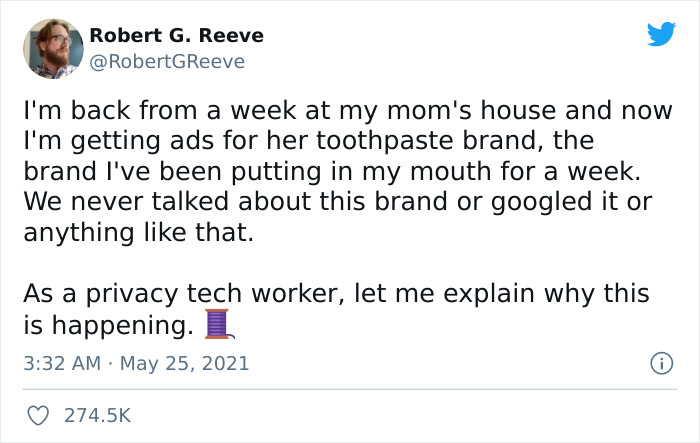
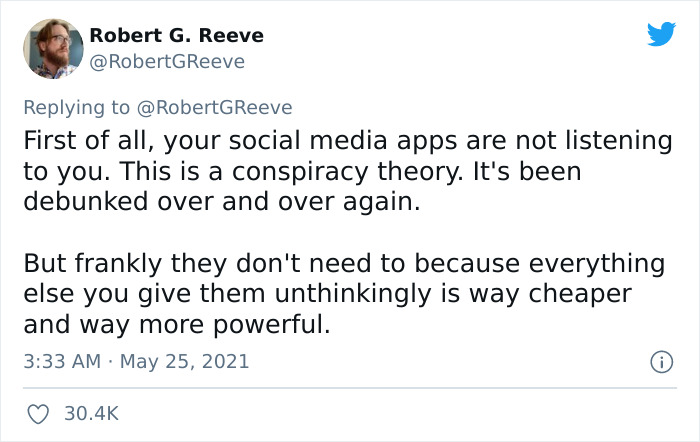
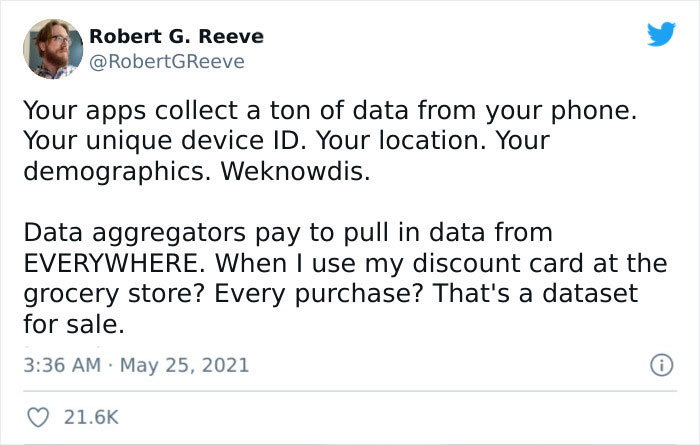
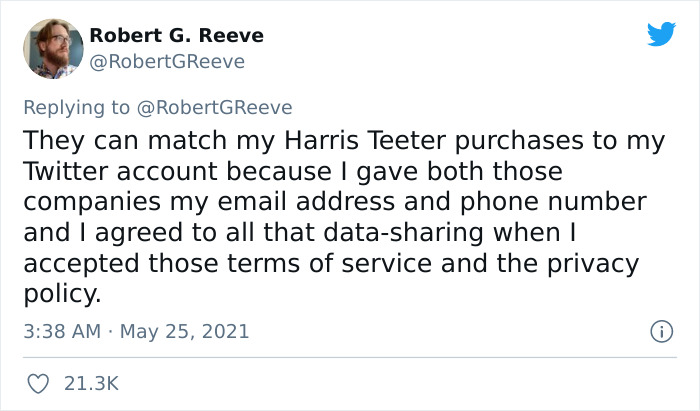
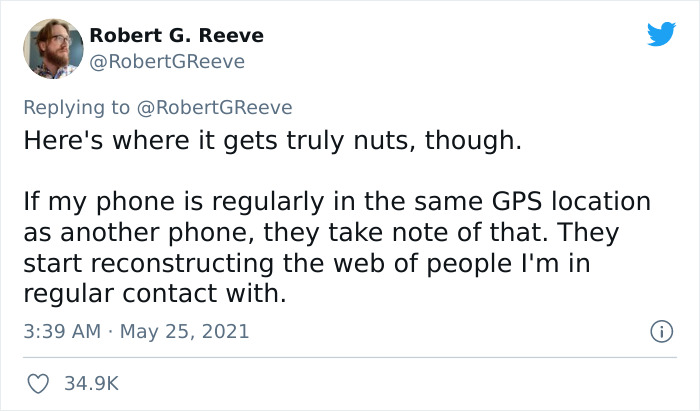
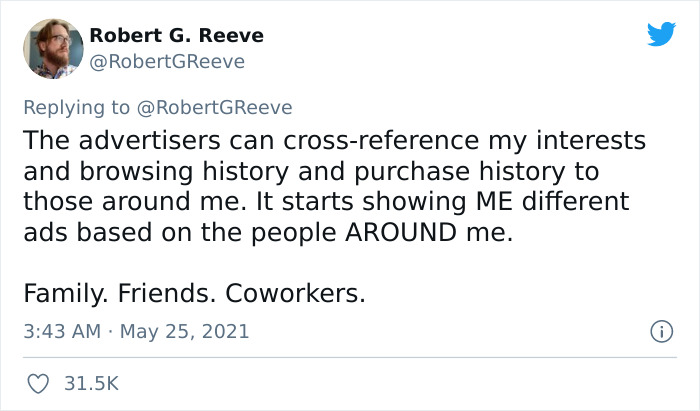
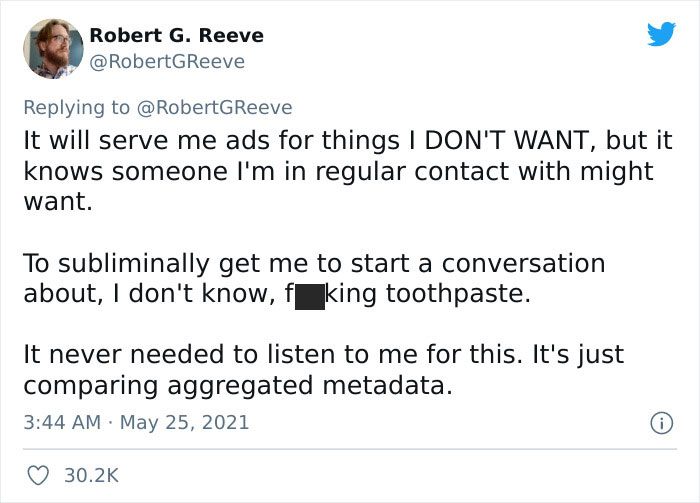
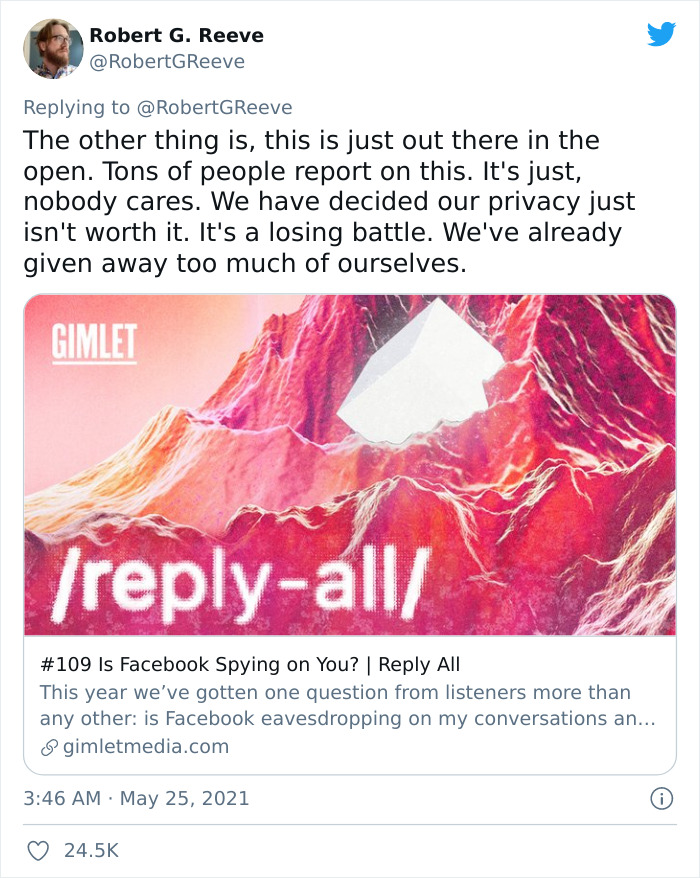

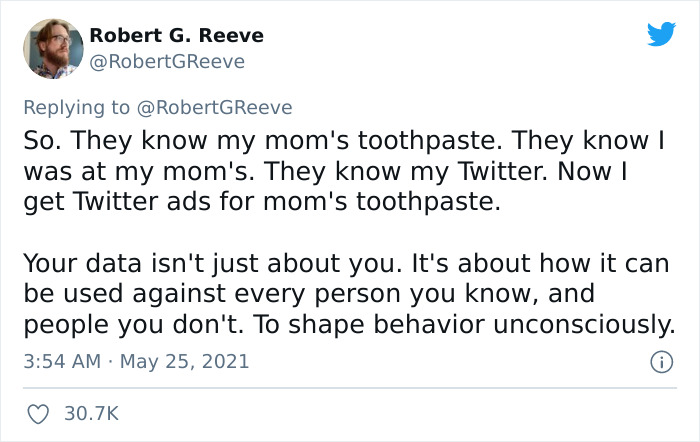
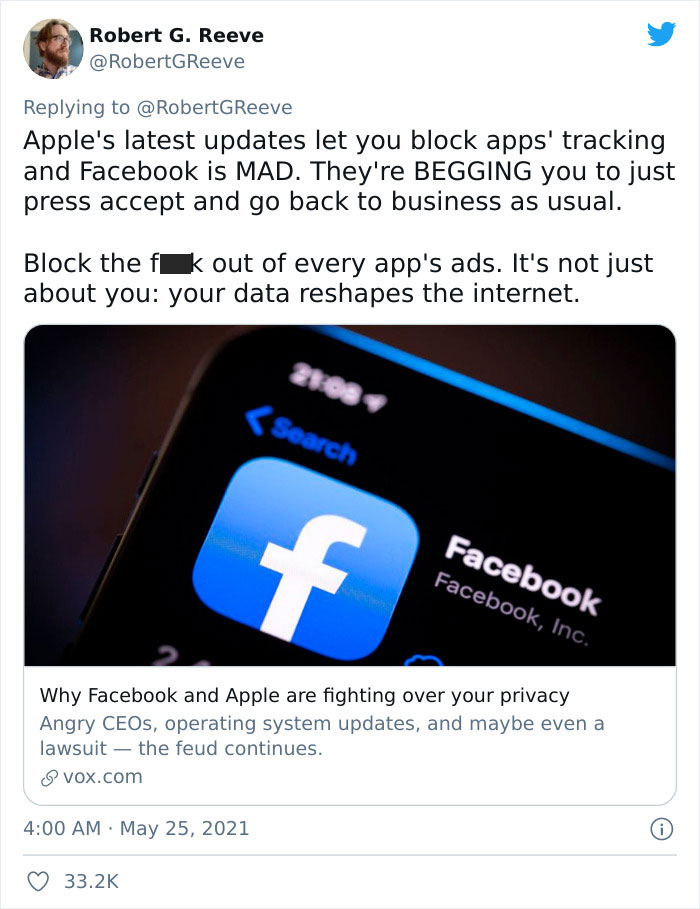
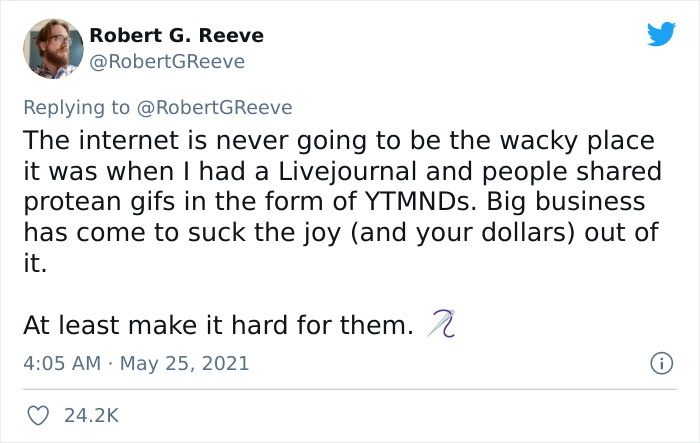
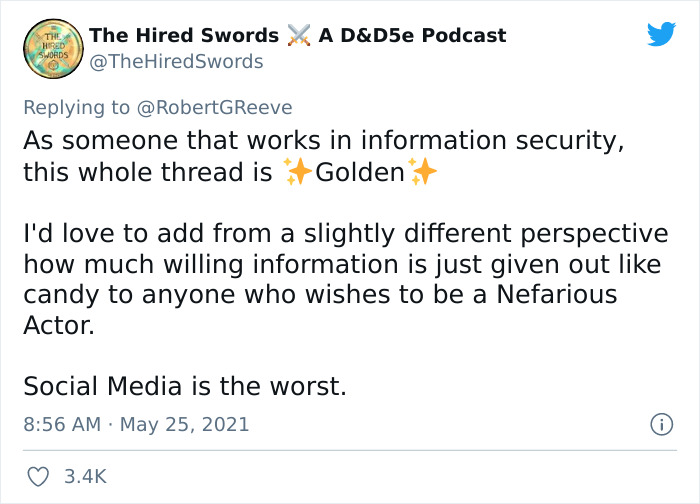
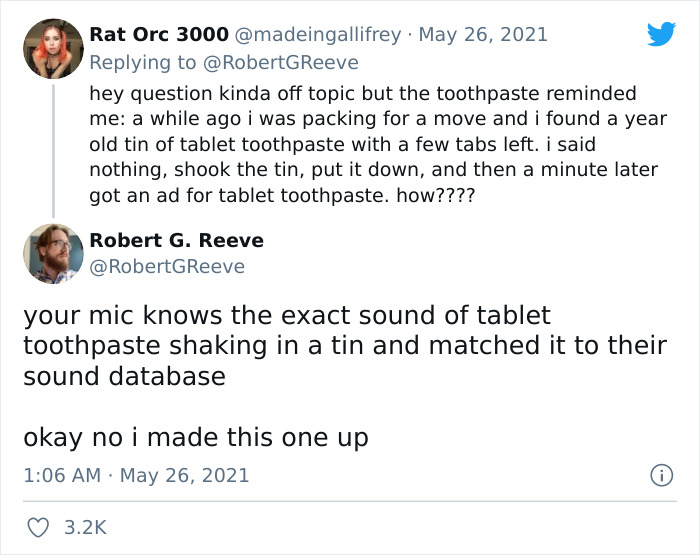
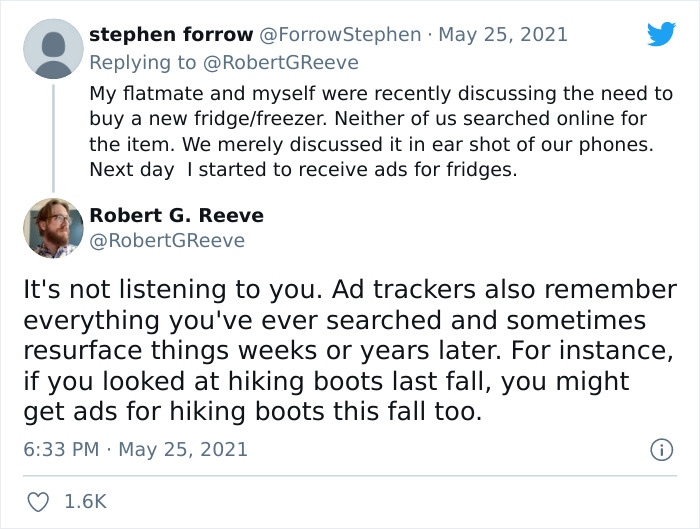
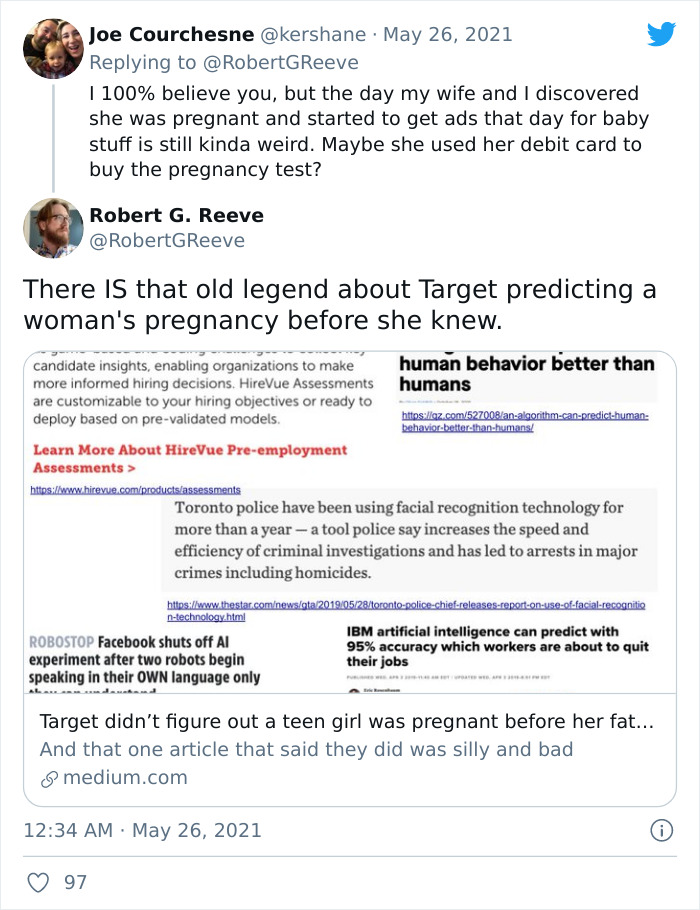
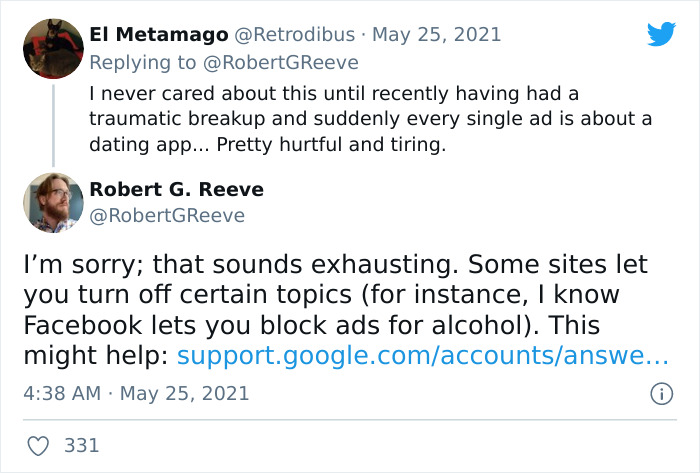
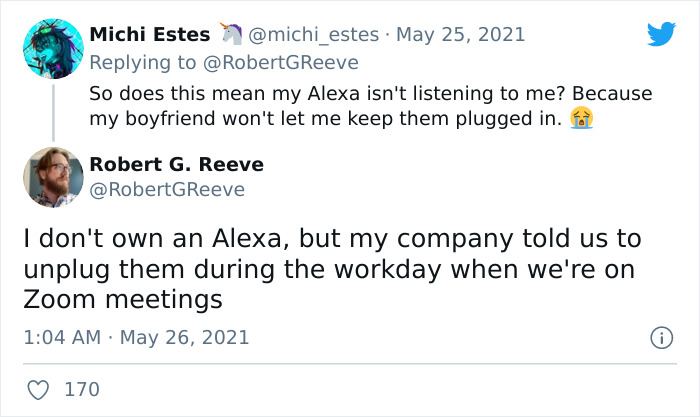
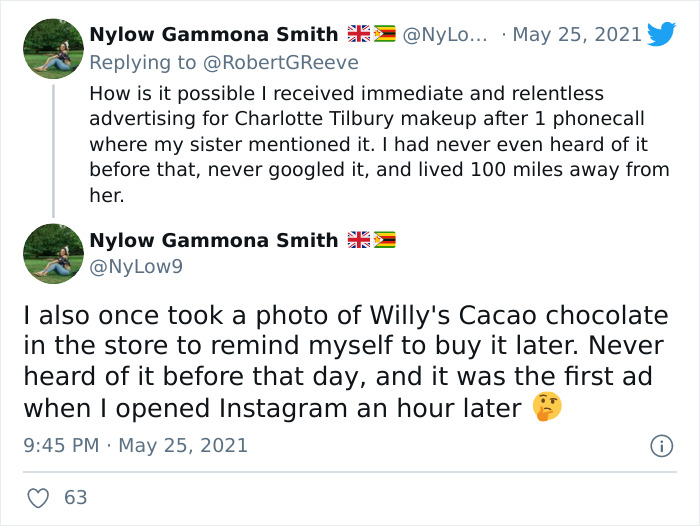
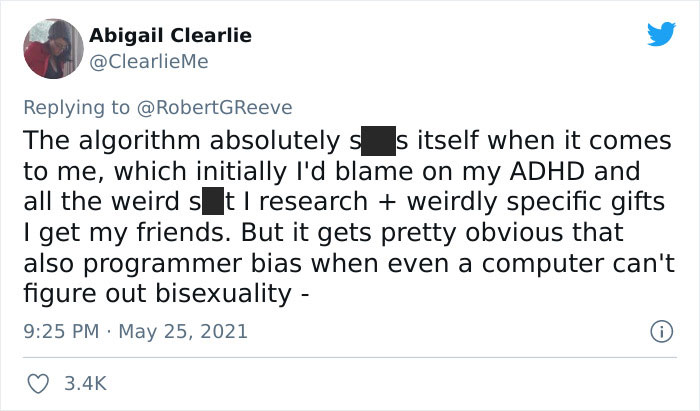
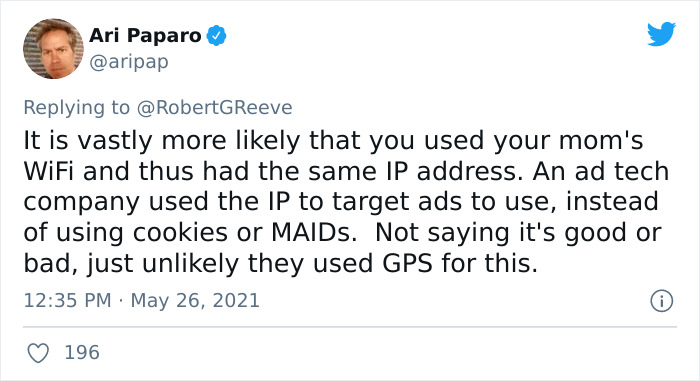
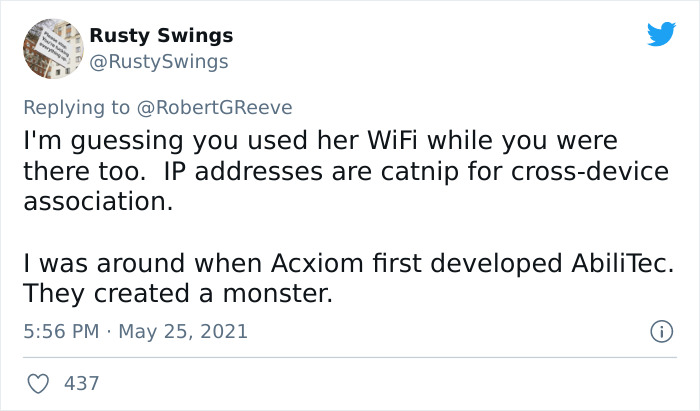
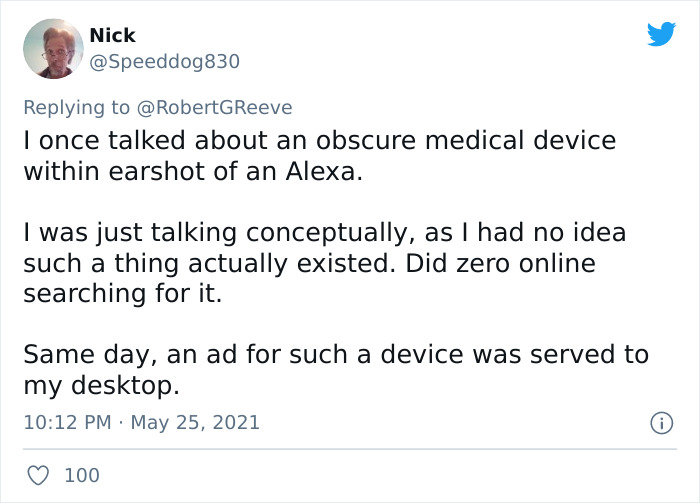
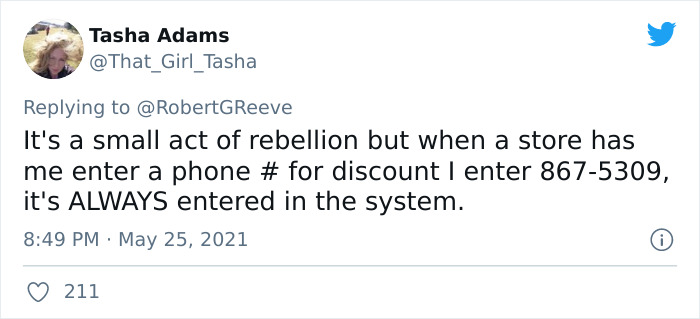

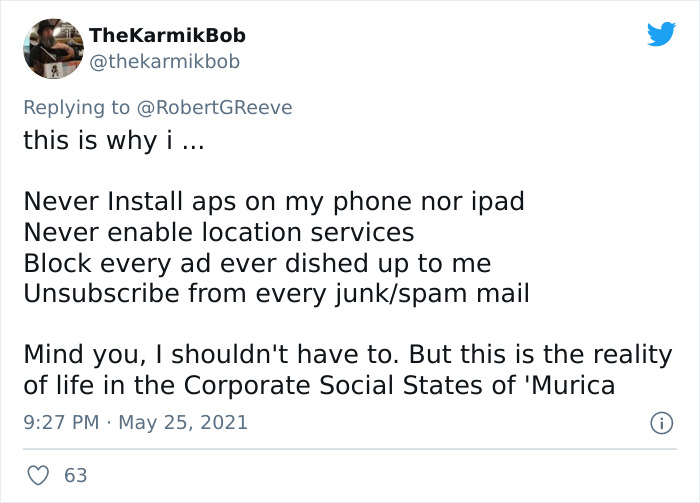












































162
62